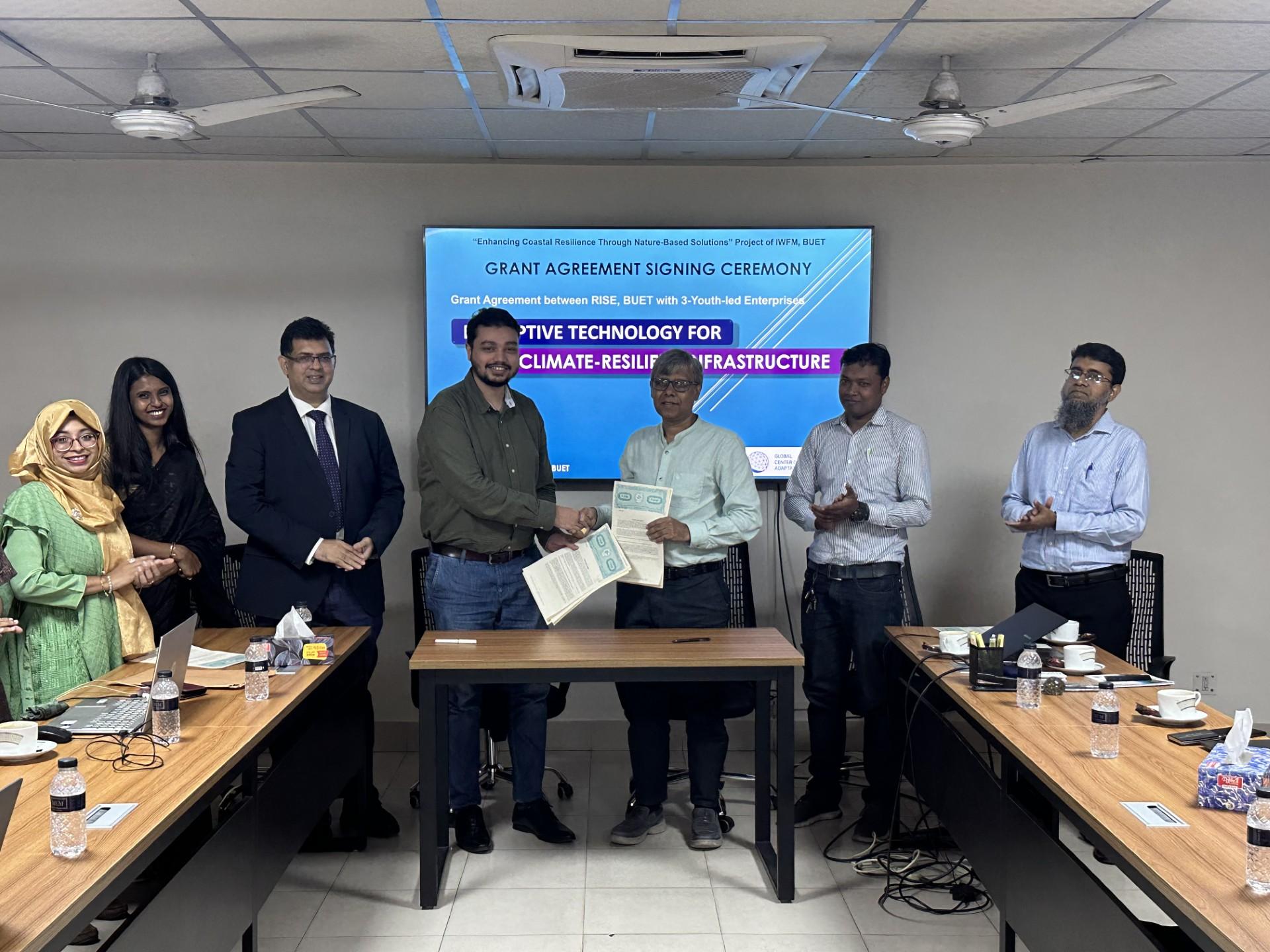ClimatePulse Partners with BUET and LGED to Launch SHORELINE Platform
April 18, 2025

The successful completion of the SHORELINE project; Seasonal Hazard Observation and Resilience Enhancement for Local Infrastructure, marks a groundbreaking moment for climate resilience in Bangladesh. Spearheaded by ClimatePulse, in close partnership with the Institute of Water and Flood Management (IWFM) at BUET and the Local Government Engineering Department (LGED), SHORELINE has delivered a fully operational, locally owned digital platform that is transforming how infrastructure is planned, protected, and adapted in the country’s climate-vulnerable coastal regions.
From the outset, SHORELINE aimed to close the gap between climate science and on-the-ground infrastructure decision-making. At the heart of this initiative is a robust Decision Support System (DSS). This powerful digital platform combines real-time weather data, historical climate records, downscaled projections, and infrastructure vulnerability information to provide early warnings for extreme weather events such as heatwaves, cold spells, and heavy rainfall. With up to four weeks of lead time, the platform empowers planners and disaster managers to act before hazards strike, safeguarding communities and critical infrastructure.
The project’s success was built on deep, sustained collaboration. IWFM-BUET brought scientific rigor and academic leadership to the table, contributing modeling expertise, vulnerability assessments, and localized climate projections that allowed the DSS to operate at a district-specific level. Simultaneously, LGED’s engagement through its Climate Resilient Rural Infrastructure Project (CRRIP) and Climate Resilient Local Infrastructure Centre (CReLIC) ensured that the system was rooted in real-world planning challenges. LGED engineers and officials not only shaped the system’s design but also co-led capacity-building efforts and validated the dashboard in field trials across coastal project sites.
Built using Python, Node.js, and SQL, the DSS features a user-friendly web interface with interactive maps, visual analytics, and automated bulletins. Since its deployment, it has been adopted by planners, local governments, and development actors across multiple districts. More than 150 stakeholders have been trained to use the platform, and feedback from these sessions has been central to refining the system’s tools to meet its users’ evolving needs better.
One of SHORELINE’s most lasting impacts is its seamless institutional integration. With formal support from BUET, ClimatePulse was introduced as a strategic partner to LGED, and a clear pathway was laid for the platform’s long-term sustainability. CReLIC has now formally assumed custodianship of the system, embedding it within public infrastructure planning frameworks and ensuring it will continue to grow and evolve under national leadership. This transition not only guarantees continuity but also serves as a model for scaling digital resilience tools across other sectors.
Throughout the project, SHORELINE maintained strong coordination with key national and international institutions, including the Bangladesh Meteorological Department (BMD), the Global Center on Adaptation (GCA), and the Cyclone Preparedness Programme (CPP). These partnerships were instrumental in integrating high-resolution datasets, developing actionable advisories, and anchoring the system within national early warning and disaster preparedness architectures.
Field deployment and validation exercises confirmed the platform’s usability and real-world impact, particularly in areas like drainage planning, embankment design, and pre-disaster interventions. The final version of the platform now includes advanced analytics for long-term scenario planning, allowing infrastructure investments to be screened against projected climate risks for decades to come.
SHORELINE stands as a testament to what is possible when innovation, science, and public policy come together under a shared vision. The platform not only delivers cutting-edge forecasting capabilities, but it also sets a new standard for climate-smart infrastructure governance. As Bangladesh continues to lead by example in climate adaptation, SHORELINE will remain a cornerstone of its strategy to build forward better, offering a scalable blueprint for resilience that can be replicated in other regions and sectors in the years ahead.
